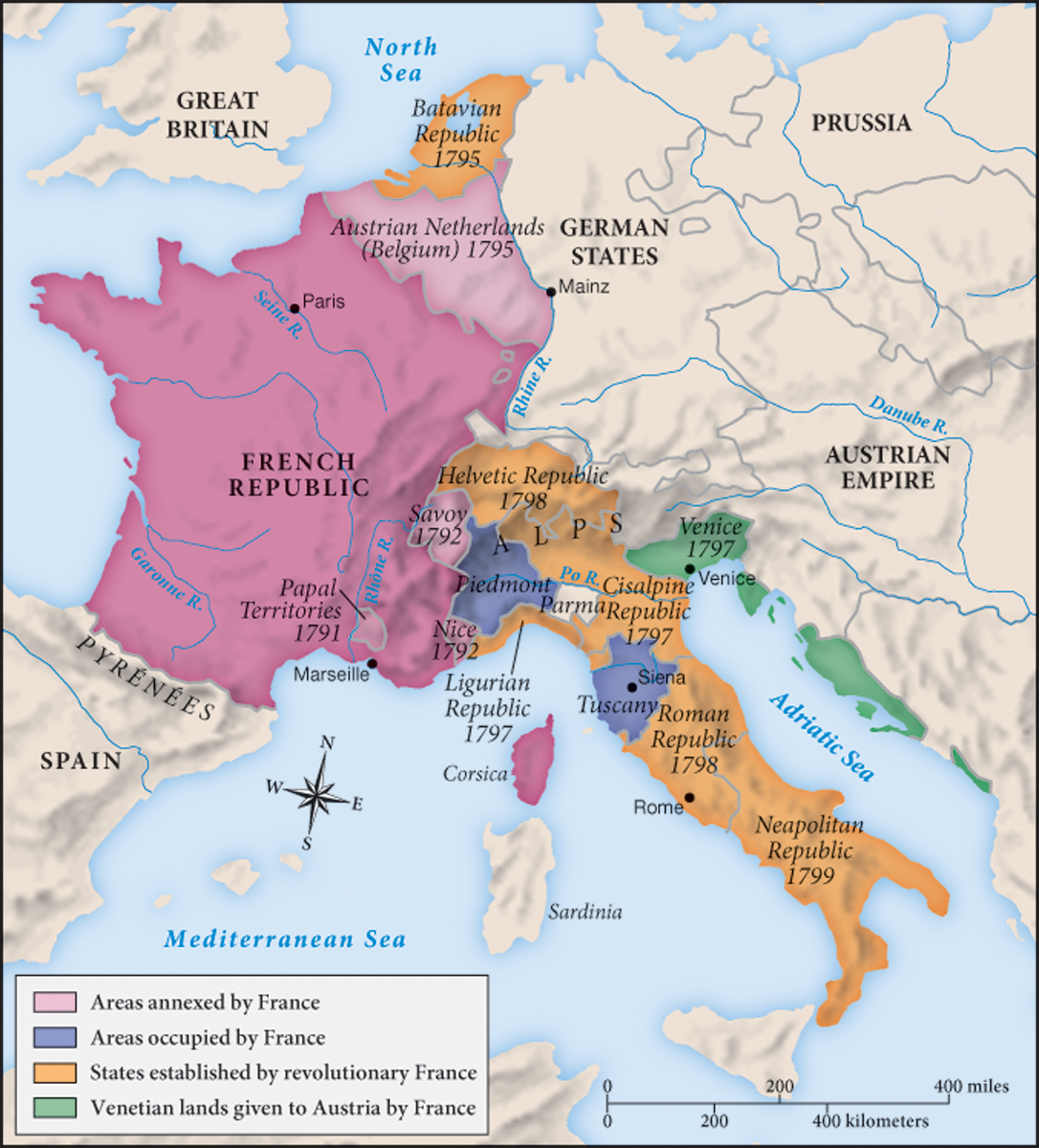Arms and Conquests
Printed Page 628
Important EventsArms and Conquests
The powers allied against France squandered their best chance to triumph in early 1793, when the French armies verged on chaos because of the emigration of noble army officers and the problems of integrating new draftees. By the end of 1793, the French had a huge and powerful fighting force of 700,000 men. But the army still faced many problems in the field. As many as a third of the recent draftees deserted before or during battle. Generals might pay with their lives if they lost a key battle and their loyalty to the Revolution came under suspicion. Although France had built up a relatively large navy, the dominance of Great Britain on the seas meant that France had to seek victory on the land. (See “Taking Measure: Naval Power.”)
France nevertheless had one overwhelming advantage: those soldiers who agreed to serve fought for a revolution that they and their brothers and sisters had helped make. The republic was their government, and the army was in large measure theirs, too; many officers had risen through the ranks by skill and talent rather than by inheriting or purchasing their positions. One young peasant boy wrote to his parents, “Either you will see me return bathed in glory, or you will have a son who is a worthy citizen of France who knows how to die for the defense of his country.”
When the French armies invaded the Austrian Netherlands and crossed the Rhine in the summer of 1794, they proclaimed a war of liberation (Map 19.2). In the Austrian Netherlands, Mainz, Savoy, and Nice, French officers organized Jacobin Clubs that attracted locals. The clubs petitioned for annexation to France, and French legislation was then introduced, including the abolition of seigneurial dues. As the French annexed more and more territory, however, “liberated” people in many places began to view them as an army of occupation. Despite resistance, especially in the Austrian Netherlands, these areas remained part of France until 1815, and the legal changes were permanent.

The Directory government that came to power in 1795 launched an even more aggressive policy of creating semi-independent “sister republics” wherever the armies succeeded. When Prussia declared neutrality in 1795, the French armies swarmed into the Dutch Republic, abolished the stadholderate, and—with the revolutionary penchant for renaming—created the new Batavian Republic, a satellite of France. The brilliant young general Napoleon Bonaparte gained a reputation by defeating the Austrian armies in northern Italy in 1797 and then created the Cisalpine Republic. Next he overwhelmed Venice and then handed it over to the Austrians in exchange for a peace agreement that lasted less than two years. After the French attacked the Swiss cantons in 1798, they set up the Helvetic Republic and curtailed many of the Catholic church’s privileges. They conquered the Papal States in 1798 and installed a Roman Republic, forcing the pope to flee to Siena.
The revolutionary wars had an immediate impact on European life at all levels of society. Thousands of men died in every country involved, with perhaps as many as 200,000 casualties in the French armies alone in 1794 and 1795. More soldiers died in hospitals as a result of their wounds than on the battlefields. Constant warfare hampered world commerce and especially disrupted French overseas shipping. Times were now hard almost everywhere, because the dislocations of internal and external commerce provoked constant shortages.